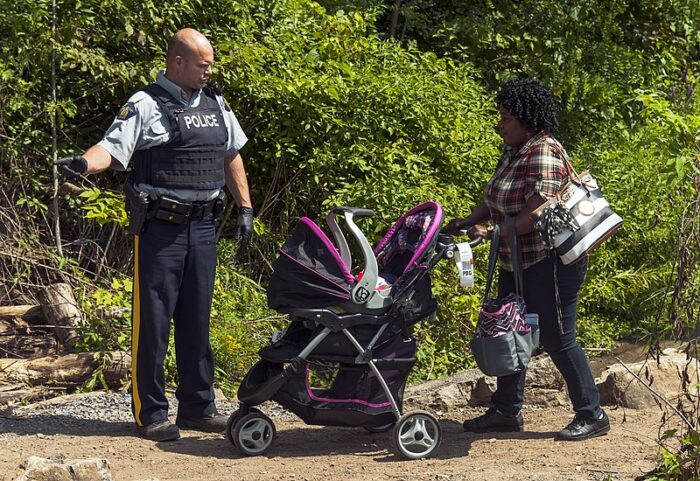Warda Shazadi Meighen is an immigration partner at Landings LLP and an adjunct professor of refugee law at the University of Toronto
Until 2004, when the Canada-US Safe Third Country Agreement was signed, asylum seekers could enter Canada in an orderly manner by presenting themselves at an official port of entry at the Canada-US border. Once the agreement came into effect, however, that was no longer possible. The result? Would be asylum seekers had no choice but to cross the border outside ports of entry, like Roxham Road in Quebec — a loophole in the agreement.
And while some say that Roxham Road should be “closed”, this is an impossible oversimplification of what needs to be done to rectify the situation. It is simply not possible to humanely “plug the hole” in the longest international boarder in the world.
More importantly, if Canada does put up barriers, it will see a lot of very desperate people — many of whom are ultimately determined to be genuine refugee claimants — in incredibly precarious situations turning to human smugglers who exploit that individual desperation. We also will be flouting our international obligations toward refugees. As noted recently by Llyod Axworthy and Allan Rock, seeking aslyum is a legal human right.
Clearly, something must be done. While close to 39,000 people crossed at Roxham Road last year, in the context of global refugee and immigration numbers, (over 100 million) this is a low number. However, the concentration of so many people coming into one province places immense pressure on settlement services in Quebec. Frontline workers often wish to assist but do not have the capacity to, despite support from the federal government.
So, what is the solution?
We must suspend the US-Canada agreement, which will restore order and allow other parts of Canada to also shoulder responsibility for meeting our international obligations. Many of these asylum seekers have few other viable options: there is no place in the United States which would give them a proper adjudication of their refugee claim. Indeed, many of the Roxham entrants are ultimately determined to be legitimate asylum seekers by an independent Canadian tribunal. Canada does not limit the number of onshore refugee claims. As such, the asylum seekers are not jumping any queues to replace other applicants.
The Safe Third Country Agreement is not serving Canada well. To address the issues at Roxham Road, we must suspend the agreement.

